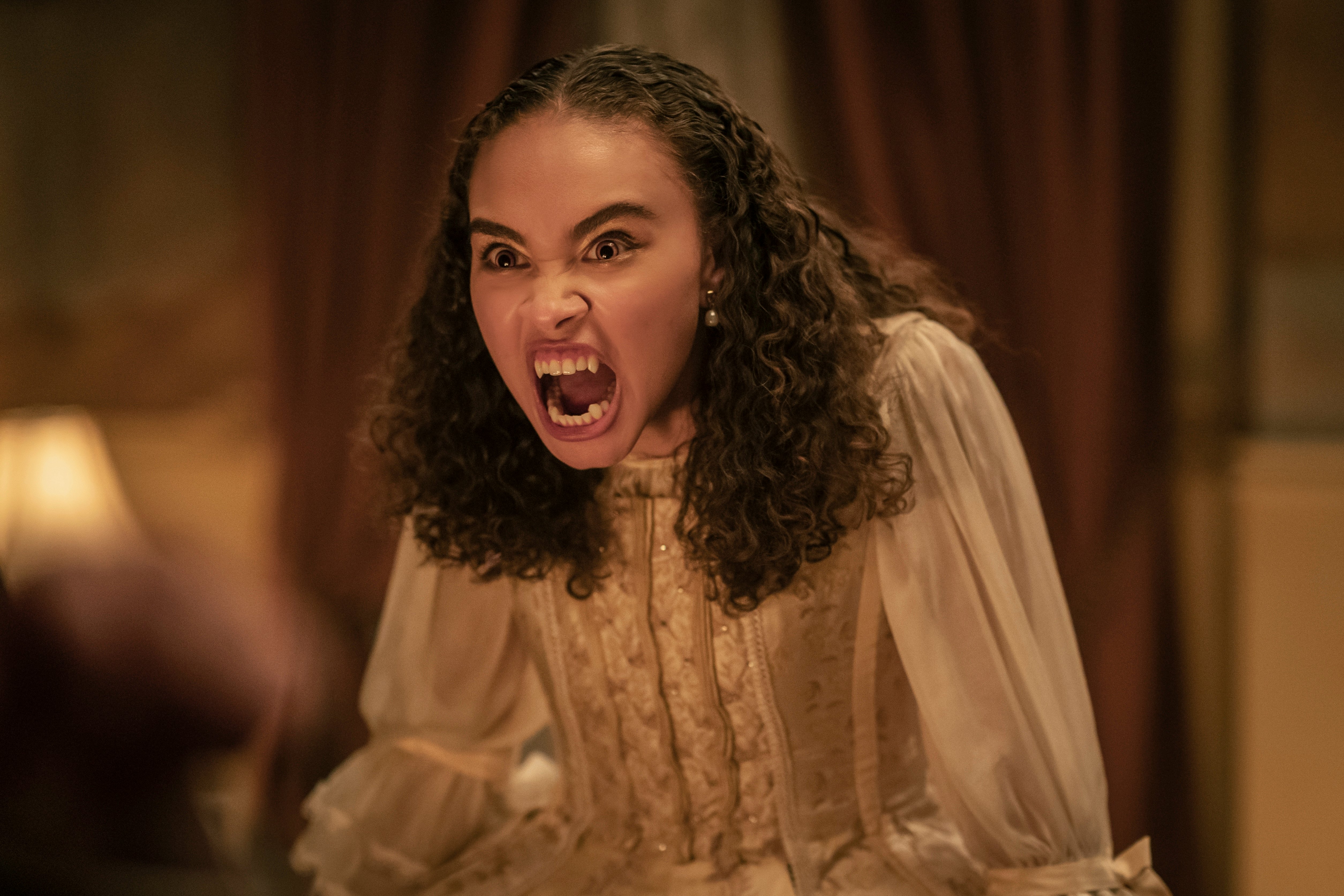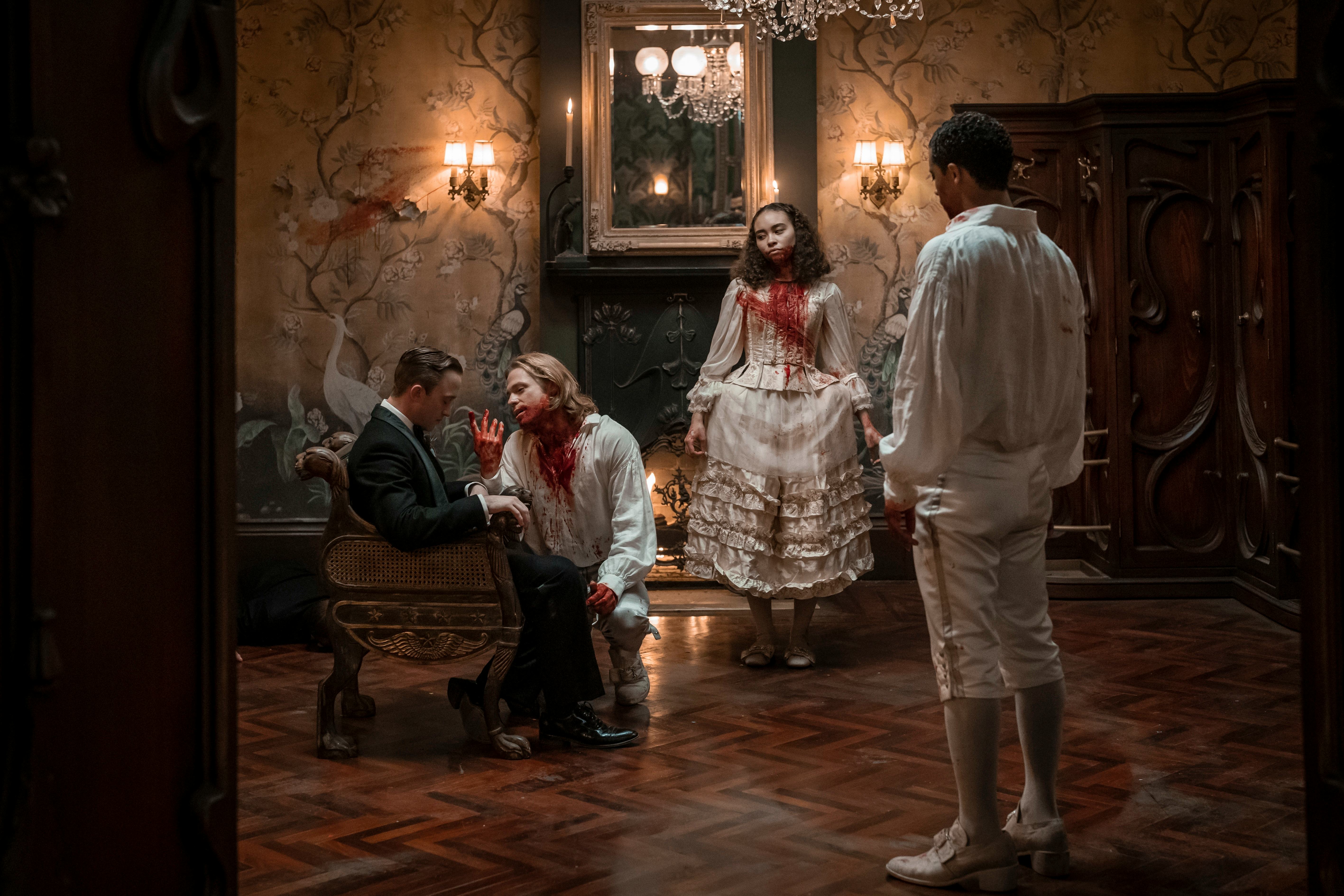
AMC’s Interview with the Vampire has long deserved more. A bigger audience, better promotion, and concrete recognition for the work that its lead actors pour into each and every episode. Despite being one of the greatest shows airing in a post-streaming world — its latest season was critically acclaimed — Interview remains criminally underseen.
For diehard fans, AMC itself may be the culprit. Interview streams on a service that few hold a subscription for, and there’s a sense that AMC isn’t doing the legwork to promote the series in earnest. Well... more than a sense: fans and critics seem to agree that better marketing could turn Interview from “the best show that no one is watching” to, perhaps, a global phenomenon. The most ardent devotees want Interview removed from AMC, and resettled with a service that may have better idea of what to do with the series.
Given the fact that Interview likely wouldn’t exist as it is without AMC, that campaign is more than a little counterproductive. But the streamer might have just redeemed itself in the nick of time: it’s leasing the series (along with 13 other AMC originals) to Netflix, securing the audience it’s long deserved.
Based on Anne Rice’s 1976 novel of the same name, Interview with the Vampire is a radical update of its source material. The series stars Jacob Anderson as Louis de Pointe du Lac, a 150-year-old vampire dealing with centuries of trauma and regret. He’s tapped a cynical, snappy journalist, the aging Daniel Molloy (Eric Bogosian), to help him parse through his repressed memories in the form of an interview. Daniel has the daunting task of turning an unreliable account into a best-selling memoir; it could be the success he’s been chasing for decades. But it’s worth noting that the pair have tried this once before, back when Daniel was a young upstart in 1970s San Francisco. It didn’t end well then, and history may be doomed to repeat itself now.
Interview is chock full of prickly, even toxic dynamics, and Louis’ relationship to Daniel is no different. But it pales in comparison to the relationship he spends most of his time recounting: his decades-spanning bond with the vampire who turned him, Lestat de Lioncourt (Sam Reid). Their story begins in 1920s New Orleans — and unlike previous adaptations, it doesn’t shy away from explicitly romantic (or sexual) themes. Nor does it minimize Lestat’s abusive nature: Louis was clearly trapped in a dangerous relationship, one that broke his soul as well as is body, and Interview’s first season follows his many attempts to reconcile that.

Apart from unpacking the highs and lows of its central queer romance, Interview also tackles racial strife in the Jim Crow South. The series makes a brilliant choice in recasting Louis (formerly a white plantation owner) as a Black Creole entrepreneur. His time in Louisiana is full of struggle and self-denial, punctuated by wincing encounters with the bigoted elite.
You’d think the balance of power would change once he’s turned into a vampire; as cathartic as it’d be to watch Louis tear his way through New Orleans’ upper crust, unleashing his newfound power does come with undo consequences. The specter of race will follow Louis wherever he goes, a lesson both he and his adopted daughter Claudia (Bailey Bass) will struggle to accept.
Interview asks a question that other vampire stories seldom address: does your life actually change if you take on immortality and all its infernal perks? For so many marginalized characters, it’s not a simple “yes” or “no.” Humanity is messy, and vampirism is just a heightened (and slightly campier) reflection of that. Interview relishes in its theatricality, so the series may not be for everyone. But at least now it has a better chance to spead the good word, delivering a take on the supernatural that’s rarely explored elsewhere.







